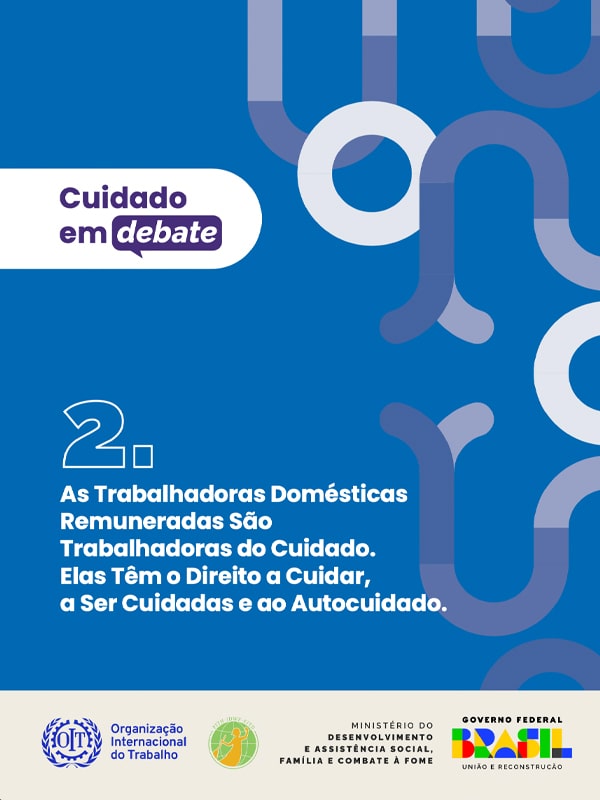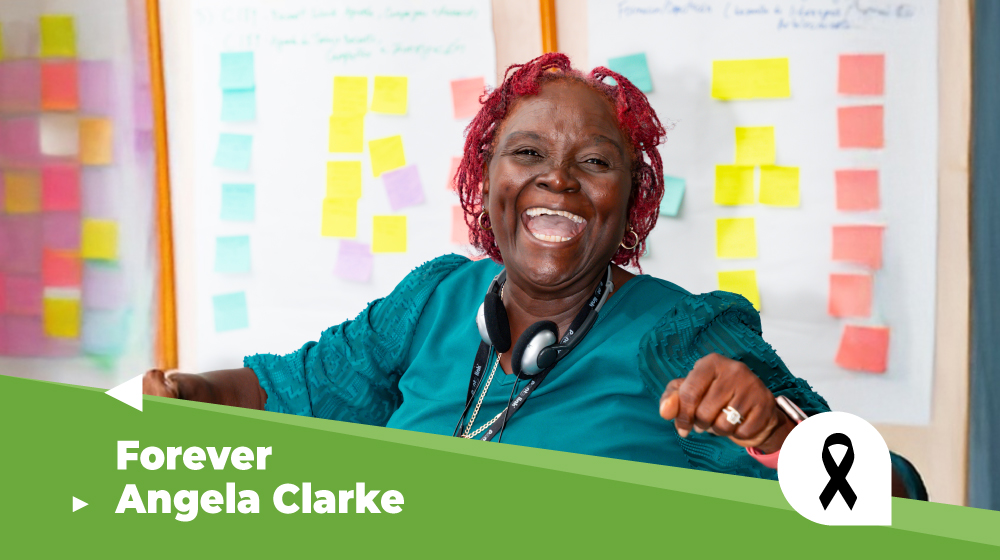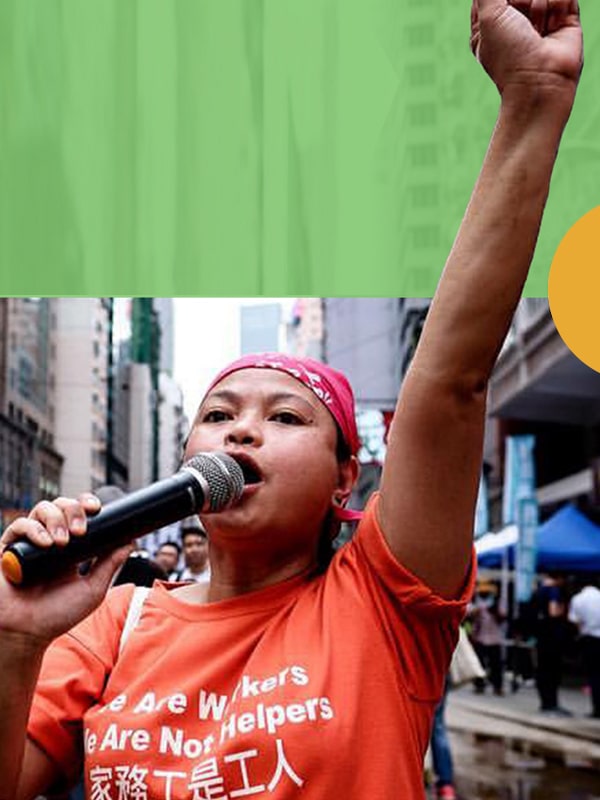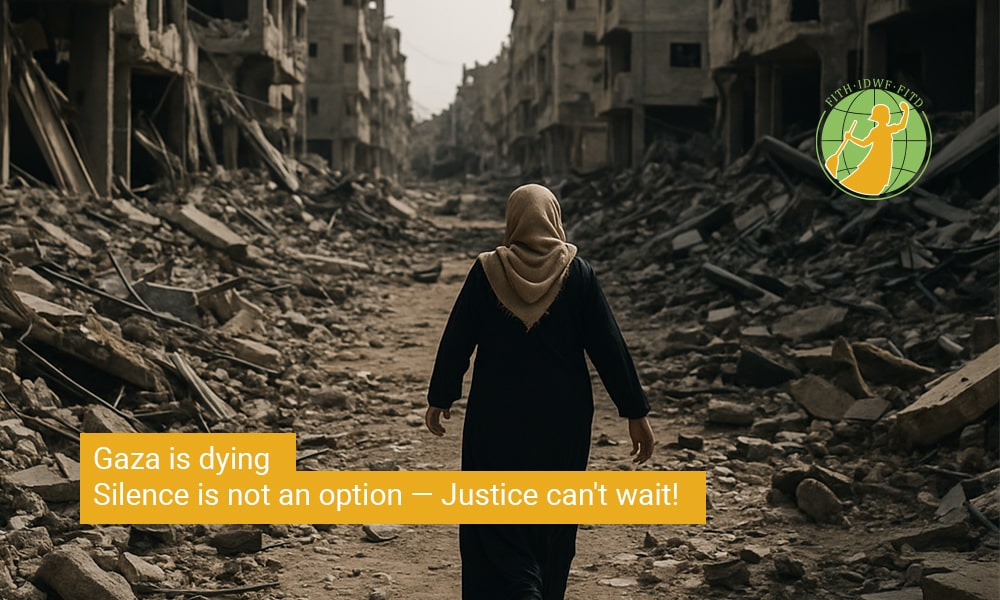
Any given day, in downtown Guatemala City, you might find an indigenous woman selling fruits at the church’s door. Her name is Saya, and she has been a domestic worker for over fifty years.
“Do you ask why I’m here? Well, despite having worked hard all my life as a domestic worker, my employers never registered me. Today, I have no pension or right to medical care. And the little I earn is not enough for anything. What else can I do,” Saya says resignedly.
Saya was born in a Mayan village, in a poor rural worker’s home. She never went to school: from a very young age, she had to help her family in harvesting corn, doing household chores, and raising her seven younger siblings. Her father’s death forced her, at just 15, to travel to the capital to work as a domestic worker and contribute to the family’s livelihood.
“I always worked in the same house, for very wealthy people, in the city’s most exclusive neighborhood. And always as a live-in domestic worker because the salary they paid me was very low and didn’t allow me to rent even a modest room. So, for fifty years, I lived in my employers’ house, my workplace. But don’t think my living conditions were like theirs… Although they told me I was like family, my room was the ironing room, a tiny space where barely fit my mattress and my only two changes of clothes. And what about the food… They gave me leftovers of what they ate. At night, my stomach felt so empty that it was hard for me to sleep. Maybe that’s why I have so many health problems today.”
At 65, Saya suffers from rheumatism, diabetes, and anemia. And those employers who considered her “part of the family” (now an elderly couple living alone in a luxury apartment) fired her two months ago without any compensation to replace her with a “younger and more efficient” worker. Overnight, Saya was left without housing, income, and access to any social protection benefits. She doesn’t sleep on the street thanks to a sister who gave her accommodation in her precarious shack, in a humble neighborhood far from downtown.
“I dedicated my whole life to work; that’s why I didn’t marry or have children. How was I going to start a family if I worked from dawn to dusk, without days off or vacations, taking care of four children, cleaning a mansion, washing, and ironing the clothes of seven people, taking care of a disabled elder, and even taking care of pets, shopping, and gardening? The girls who worked in neighboring houses told me I was ‘the one-woman band.’ But what other remedy did I have? It was that or end up on the street.”
When she should be retired, receiving a pension, and accessing other social security benefits, Saya divides her day between endless bus trips, street fruit vending, live-out domestic work (for two households), and long lines at the public hospital early in the morning, where she gets some of the medications she needs. At her age and with her delicate health, forgotten by the state and abandoned by her employers, she has no choice but to keep fighting to survive. Like so many other domestic workers, Saya dedicated her life to caring for others, but today no one cares for her.
“Do you want to know why I didn’t report my employers? When I started working for them, I was almost a child and knew nothing about my rights or was aware that I was being exploited. On the contrary: I was grateful because they had taken me in the family and, as they had promised me, they would send me to school. Over time, the workload became increasingly heavier, until it became unbearable, and for a miserable salary. The promise of giving me education was never fulfilled. Then, I started asking questions and challenging.”
But the fair claim that should have led to an improvement in Saya’s working and living conditions soon became the beginning of a nightmare.
“When I raised my voice, things got really bad. They started mistreating and insulting me… They often called me ‘lazy’, ‘ungrateful’, or ‘wild’. Even the old man hit me with his cane and sometimes touched my private parts. If I complained, they threatened to fire me and report me for theft. But in the hands of this brute and unreliable Mayan servant, they kept leaving the care of their children, whom I loved as if they were mine. Can you believe it?… Fear kept me silent and made me endure so much injustice.”
Saya’s story is the story of millions of domestic workers in different parts of the world. Whether due to the lack of legal protection – as is the case in Guatemala and many other countries – or due to non-compliance with current legislation, more than 80% of domestic workers worldwide are employed in informal conditions, and only 6% have full access to social protection. The sector also has one of the highest rates of child labor and forced labor.
The systematic exclusion from legal and social protection, along with the violation of labor and human rights, disproportionately affects domestic workers who face multiple forms of discrimination based on gender, race, ethnicity, social class, and migratory status, among others. Saya’s case is a clear proof of this: an indigenous girl, internal migrant, poor, and vulnerable has more chances than others to be a victim of exploitation and abuse in the domestic work sector. As she herself says ironically: “Society takes for granted that indigenous women are servants and that servants are indigenous women.”
You, who are reading this story, may be an employer of a domestic worker. Or perhaps you are a government official who, when leaving church, often comes across a woman with weathered skin, sorrowful eyes, and hands worn out by effort, selling fruits. It’s time for you to realize that formalization and access to social protection for domestic workers cannot wait. It’s a matter of social justice. But neither can the investment in universal, public, quality, inclusive care systems, based on the principle of solidarity towards those who provide and receive care. It’s a matter of human rights.
If we really want a better world, let’s start by caring for those who care for us.
DISCLAIMER:
While the main content in the ‘One Voice, All Voices’ story series is inspired by actual events, all characters, storylines, names, places, and other details are fictional. Each of these stories is a mosaic of real-life stories of domestic workers from around the world united by the same experiences, challenges, and struggles.







